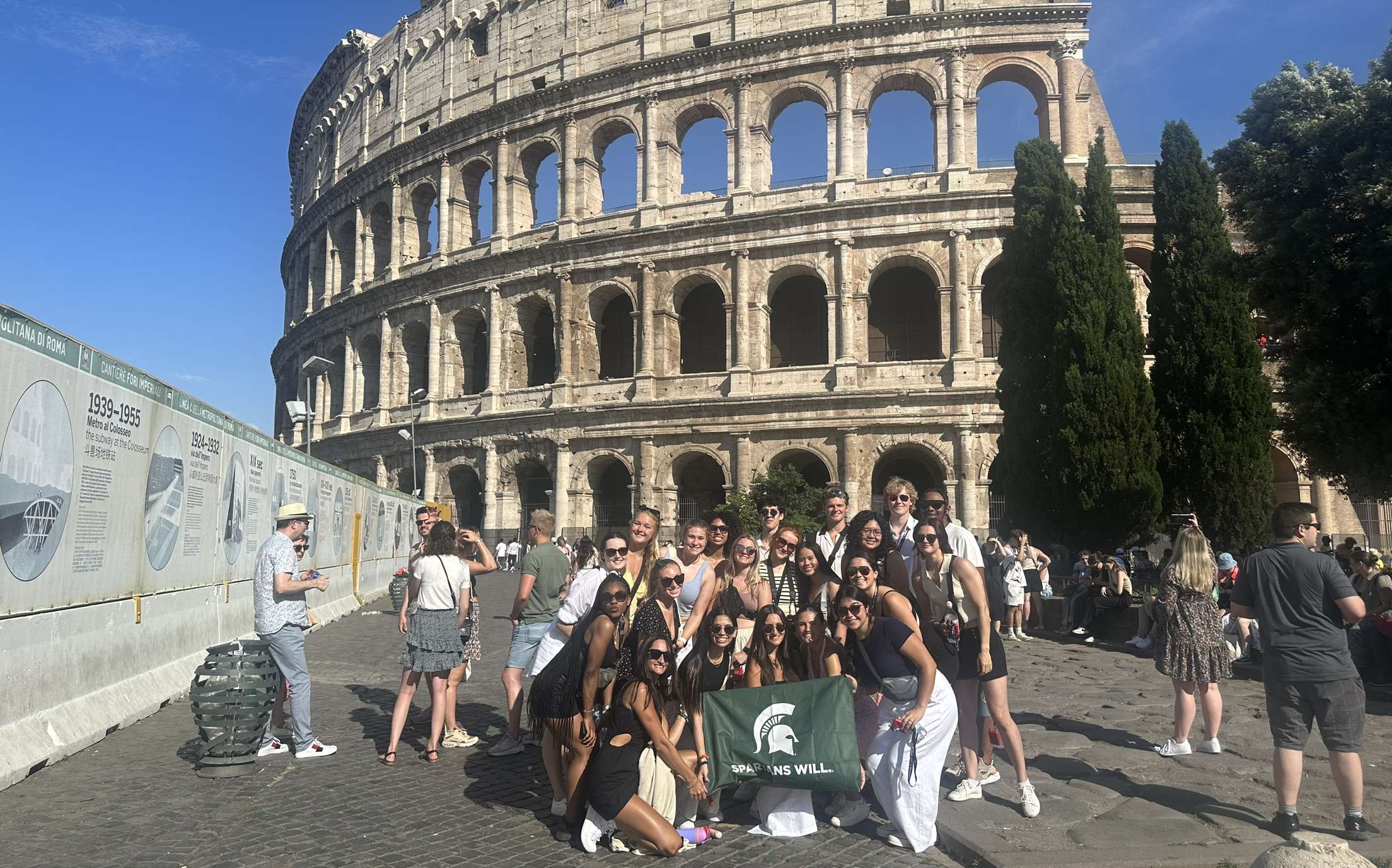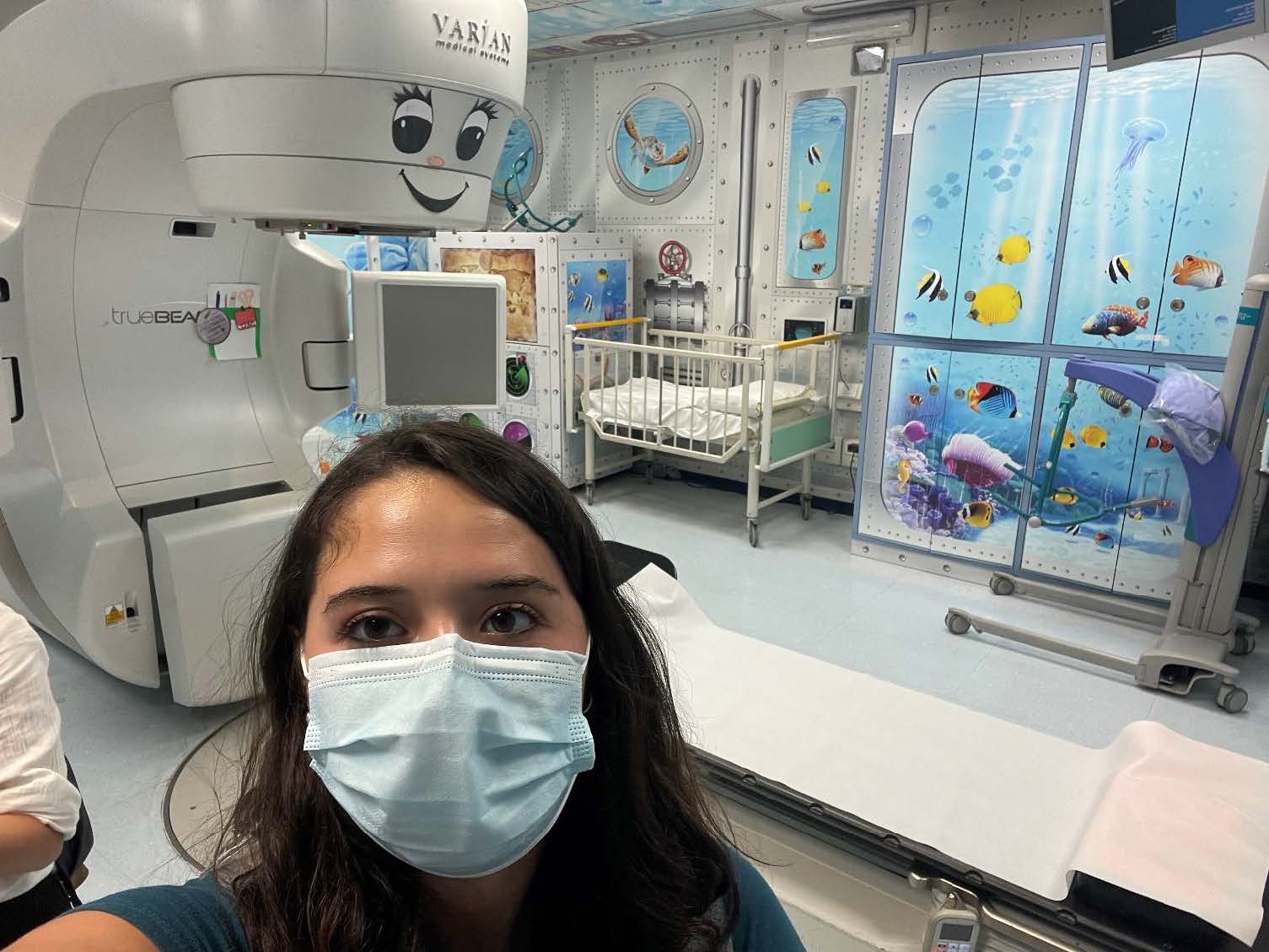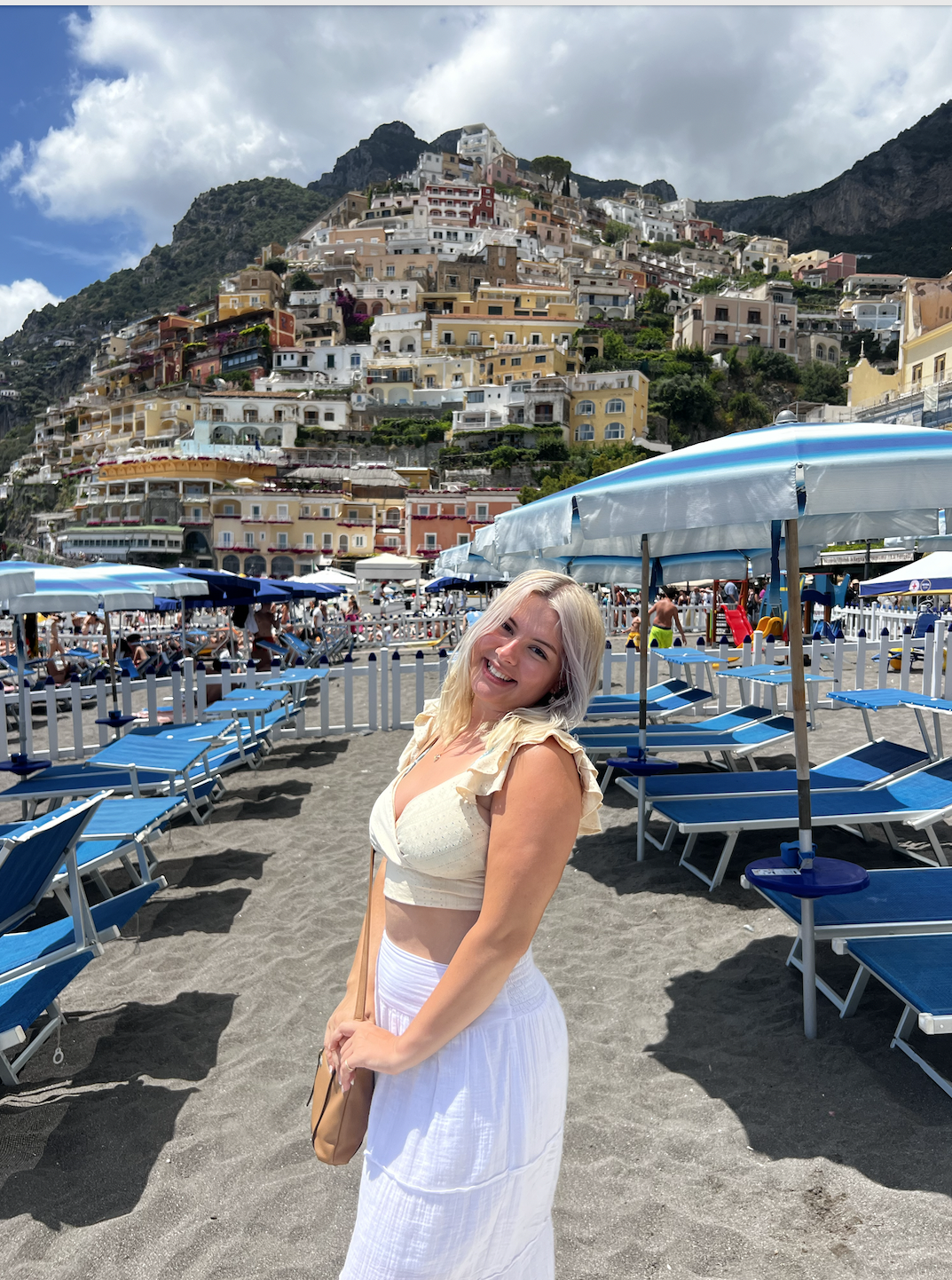Science and culture merge in study abroad summer program
Five-week Human Biology Summer in Rome offers classes and cultural experiences

Studying abroad isn’t only for literature and painting classes. It’s for scientists too.
For the last three summers, the Human Biology Summer in Rome program has offered senior Human Biology majors the chance to cross the Atlantic Ocean while advancing their education.
Students take classes required for the Human Biology major, the largest in the College of Natural Science, with credits transferring directly toward their Michigan State University degree. These six credit hours can make the difference in helping students graduate on time.
“You have to take these courses anyway,” said Sarah Whitaker, director of experiential learning and education abroad at the College of Natural Science. “Why not take them in Rome?”
Whitaker said the course is led by faculty at Università Cattolica’s School of Medicine and Surgery. The faculty are affiliated with Policlinico Gemelli University Hospital — Rome’s top hospital that provided care for Pope Francis before his death. Students tour the hospital as part of the class.
Make no mistake, this isn’t a vacation. Students spend a large chunk of their days in classes. They’re expected to finish their work and pass tests.
For five and a half weeks, students are immersed in Roman culture. They might observe how cultural factors, such as a Mediterranean diet and access to healthcare, impact health outcomes. Students see how science is the same across cultures, and they notice the ways it’s different. They also can connect what they learn in the classroom to the healthcare system.

“The experience showed me how people’s life expectancy really varies based on their environment, as that plays such a key role in human health,” Human Biology senior Ranjoy Brar said. “It also showed the severe impact of COVID-19 on the nation of Italy.”
Until two years ago, no study abroad courses were available specifically for Human Biology students. While other science courses were offered, they didn’t always fit major requirements and might have been counted as an elective.
The first year the program opened, Whitaker expected 18 to 20 students. Instead, she had to find room for 26 students. The interest was immediate.
The study abroad program is also a good opportunity for students to take high-demand courses like Cell Biology, which are often difficult to get into.
Whitaker schedules six credit hours so that students are considered full-time enrollment and can apply for financial aid if needed. The class counts toward their advanced cell biology requirement. The second course fulfills a Human Biology selective requirement, which this year was Drug Discovery and Translational Medicine.
“There’s a perception out there that if you study abroad, all you can do is take a class that might be fun but doesn’t relate to your major at all,” Whitaker said. “Here we have this opportunity that’s intentionally created to help students incorporate an intercultural dimension to their human biology major.”
MSU partners with Accent Global, an organization that works with universities to offer global education opportunities. Accent supports students by providing cultural activities and walking tours with well-educated guides. Students get experiences that they’d be hard pressed to find on their own.
“It reminds me of when I visit a big city where I have a friend who lives there,” Human Biology Director Cori Fata-Hartley said. “It’s a much better experience because they know the good restaurants, the good places to visit and how to avoid tourist traps. Accent does that. They’re like having a good friend in Rome.”

The science is solid, but students leave the program armed with new soft skills too. They’re more culturally aware and more confident after navigating an unfamiliar country. Bella Hilden, a 2025 Human Biology graduate, expected to learn about proteins, stem cells and the structure of Eukaryotic cells during her summer in Italy. What she didn’t expect was to be completely transformed by the experience.
“I was terrified when my parents dropped me off at the airport to fly to the other side of the world alone,” Hilden wrote in a reflection. “As soon as I arrived in Rome, all those worries quickly melted away.”
Being immersed in the Italian culture helped Hilden grow more resilient and surer of herself. She learned to try communicating in another language even if she felt uncomfortable, and to navigate new environments on her own. That extra boost in confidence and cultural competency helped equip her as a future physician assistant.
Whitaker hopes the summer program becomes a staple of the Human Biology major. She’s looking for future course topics to keep the program fresh.
Students have another chance to merge culture and science next summer. Visit the Office for Education Abroad website for more information.
- Categories: